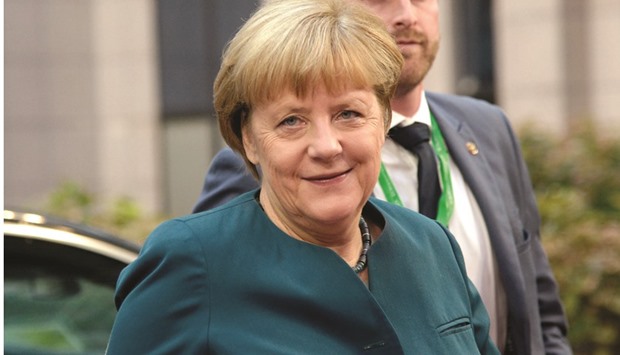German Chancellor Angela Merkel’s Christian Democrats (CDU) have a clear lead over their centre-left Social Democrat (SPD) rivals in elections in the southwestern state of Saarland, according to an initial projection from public broadcaster ZDF.
The CDU won 40.4% of the vote to the SPD’s 30.4%, dampening hopes within the German left that it could sustain the momentum gained after the arrival of former EU bureaucrat Martin Schulz as the SPD’s leader.
Broadcaster ARD estimated a slightly bigger lead for the CDU of 41% against SPD’s 29.5%.
The vote was held in the tiny state of Saarland on the French border, which has a population of only 1mn, but was seen as a bellwether ahead of the September 24 general election in which Merkel is seeking a fourth term.
The election was the first of three regional votes ahead of the federal vote and as such offered an opportunity for the parties to build – or lose – momentum in their quest to prevail at the national level.
After years of listless ratings, the SPD rose around 10 percentage points in opinion polls in the wake of Schulz’s announcement that he would seek to unseat Merkel in the September 24 elections, in what has come to be referred to as the “Schulz effect”.
The ZDF projection showed the far-right Alternative for Germany (AfD) winning 5.9% of the vote, meaning that Saarland will become the 11th of Germany’s 16 states where it has cleared the 5% hurdle necessary for representation.
Yesterday’s result is a relatively poor one for the AfD, which is polling around 9% at the national level.
Europe’s refugee crisis, which fueled support for the AfD last year, has faded as an issue and the party has been dogged by infighting.
AfD chief Frauke Petry said that she was “proud” of her party’s result, but expresses disappointment that voters had chosen a continuation of the Saarland’s grand coalition between the CDU and the SPD, saying the constellation “promises only stagnation”.
Saarland’s Left Party (Die Linke), under the powerful former finance minister Oskar Lafontaine, won 14.4% of the vote, making it the third-strongest party in the state.
Meanwhile, both the environmentalist Greens and the business friendly Free Democrats (FDP) fell short of the 5% vote share required to re-enter the state parliament, according to the ZDF’s projection.
Merkel, who has headed three consecutive governments since 2005, is seeking to win a third term in office in the September 24 election and the Saarland poll was widely considered a first test of her chances.
The chancellor has come under fire at home for her decision to open German borders to hundreds of thousands of migrants in 2015.
She has also been accused of shifting her party to the left and co-opting some of the SPD’s messages, thereby fuelling the rise of the AfD.
“This is a of course a really great start to the election year of 2017,” Michael Grosse-Broemer, one of Merkel’s top deputies in parliament in Berlin, told ARD.
Like federal Germany, Saarland has been governed by a “grand coalition” of Merkel’s conservatives and the SPD and that situation looked likely to continue as the result left the CDU short of sufficient support to rule alone in the state.
The SPD and the far-left Linke also lacked enough votes to form a left-leaning coalition in the state assembly.
“Without the SPD there won’t be a government in Saarland,” Ralf Stegner, a Schulz ally and deputy SPD leader, told ZDF, putting a brave face on the result.
Prior to the election, polls had indicated a left-leaning “red-red-green” alliance of the SPD, the Linke and the Greens – or even a “red-red” coalition if the Greens fail to win enough votes – could emerge after the vote.

The vote in Saarland has been seen as a bellwether ahead of the September 24 general election in which Merkel (right) is seeking a fourth term.
